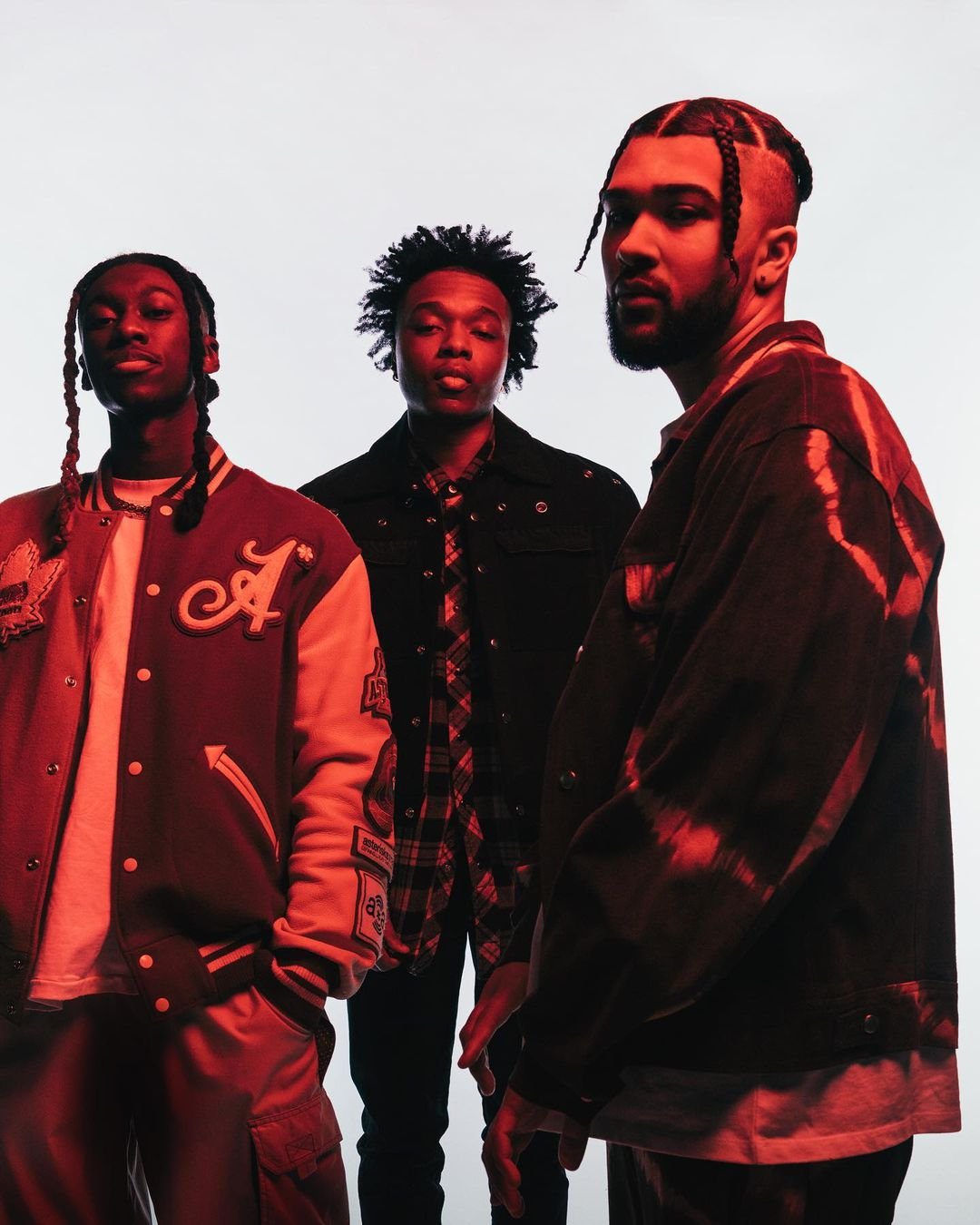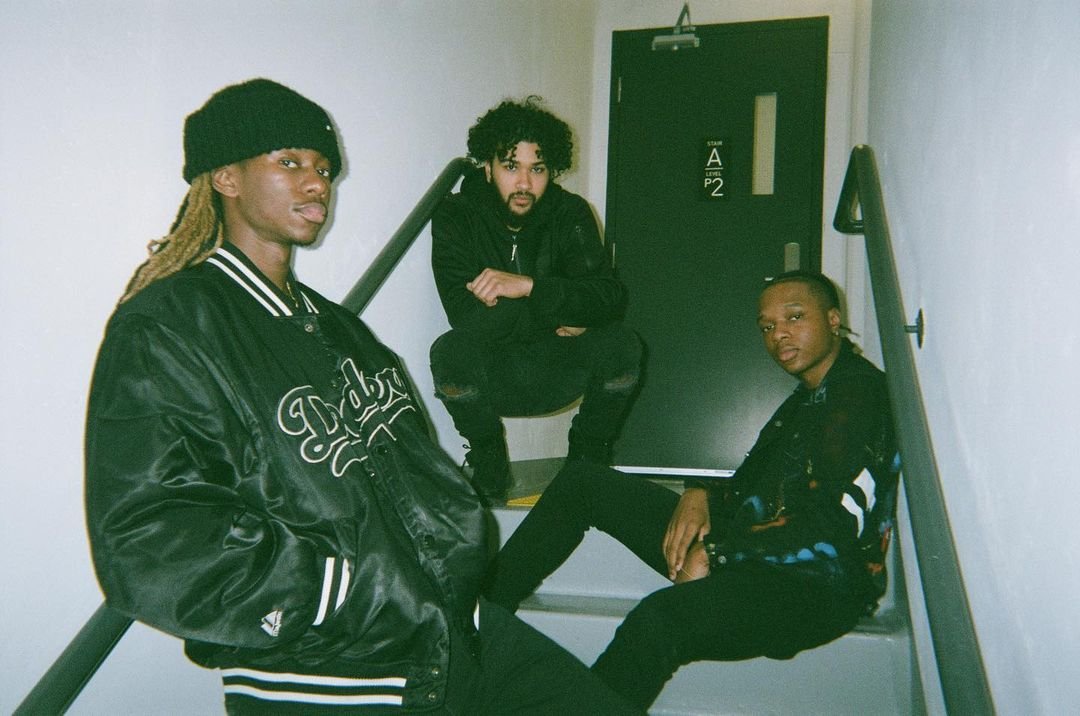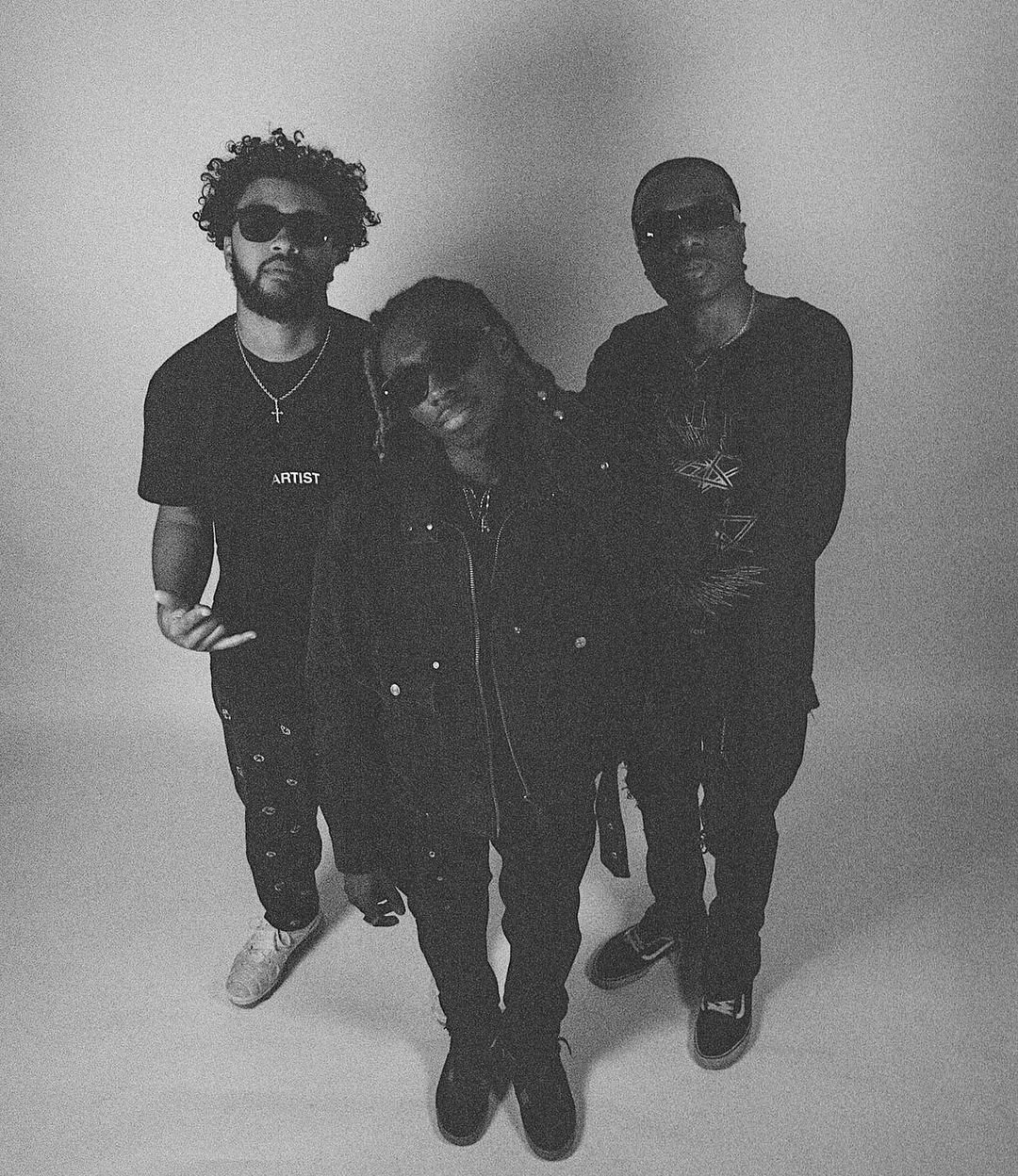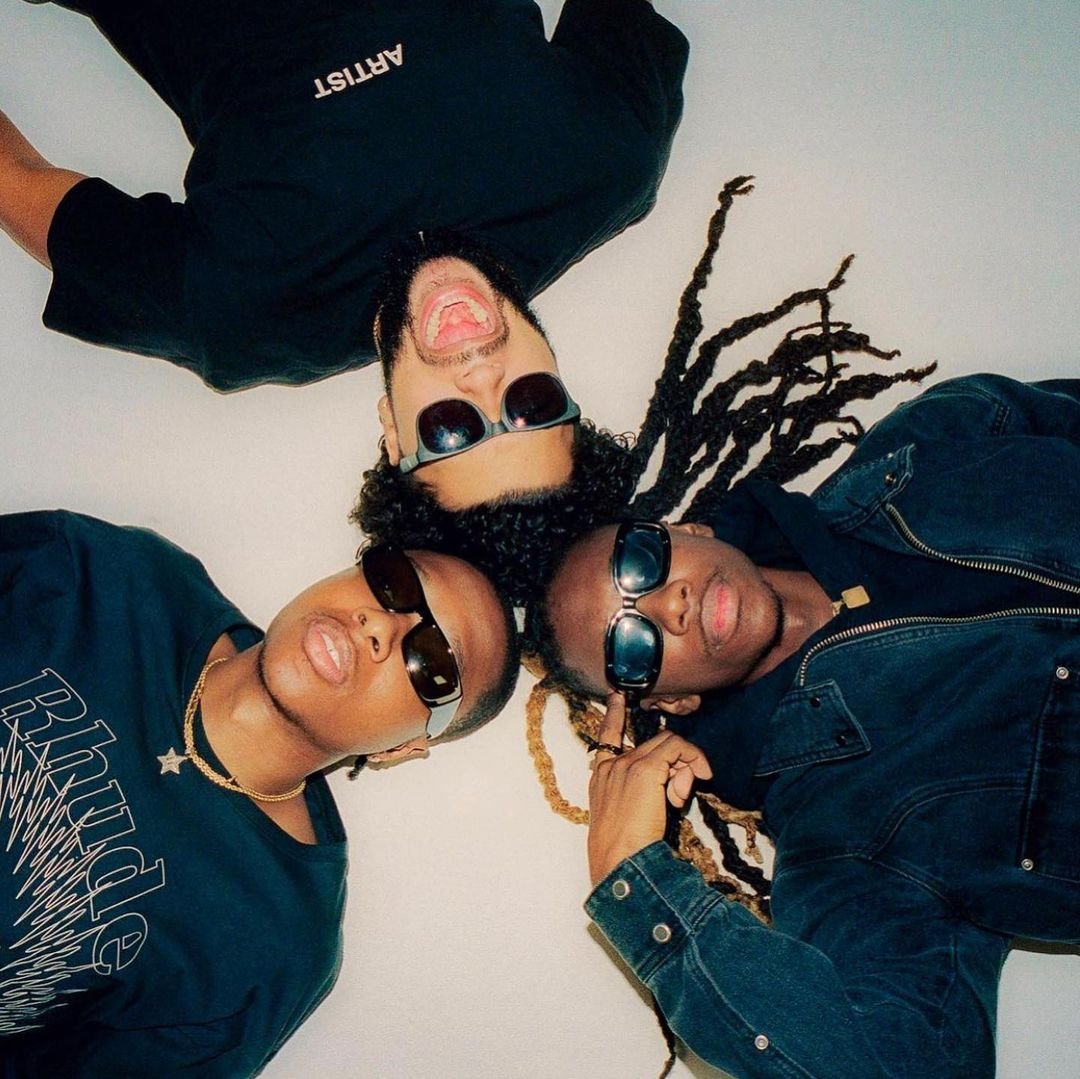
Shoy by @poaloazzaraga
Toronto has a new R&B trio, and they’re slowly gearing up to take over the city. Comprised of Reeko, Isaiah and Malachi, GOODBADUGLY is working to bring nostalgia and intimate R&B cuts to the table. The group formed in 2020, and worked on a record together in 2021 without even meeting each other yet — after the outcome of each of their versions complimented one another so well, the song went on to be their first single as a group, “Would You Mind.” Their soothing voices, undeniable chemistry and genuine personalities combine to make them one of the most exciting acts emerging out of Toronto right now.
In the saturated scene of Hip-Hop and R&B music in Toronto, GOODBADUGLY are setting themselves apart by simply being themselves. Fresh off the success of their second single, the all-too relatable “Next Man,” the trio took the time to sit down with Sidedoor to talk about their career as a group thus far.
I was wondering if we could start from the beginning. How did you guys meet, how’d you guys connect and how did you guys form GOODBADUGLY?
Malachi: Okay, so it was all an idea. Basically a concept of, ‘how do we get some talented artists to come together and form an R&B group?’ And we gave it a shot in the studio. We actually worked on a record without even meeting each other yet. It was just a pitch. It was just an idea. And once we all cut our versions of it, we all put it together and it made our first single, “Would You Mind.” That’s pretty much it. We just looked at each other, like, ‘I guess we’re a group!’
Isaiah: We all had careers going on. I guess, just all of us being really good artists individually, it made sense to join together.
Where did the name come from?
Malachi: So we were just kind of thinking about our characteristics, like us three. We’re all different. We all come from different areas of the city, right? And our personalities just speak for where we come from and our different backgrounds in life and stuff. Then we were just saying, ‘okay, well we have the good guy. We have the bad guy..’
Reeko: Oh, so I’m the ugly guy?
Malachi: No, I’m playing. We were talking about this concept of the music that we’re going to be making: we’re gonna be making songs about love. We’re going to make songs about life and just everything that we go through in all steps, all walks of life. Everything that I realized that comes with that is the good, the bad and the ugly side. With everything and especially with relationships, it’s not always going to be ups. It’s not always going to be downs. It’s the ugly that is the struggle that makes you come out of that and be a better person. Be the better person for yourself and for everyone around you. So I think when we were just talking about the kind of music that we’re gonna make, it was just, ‘this is what it is.’ This is the essence. So I brought that idea up to the group and everyone was like, ‘oh God, that’s amazing! Let’s just work with that.’ And we literally we put GBU into every song we’ve made, so it’s just who we are.
Isaiah: We’re interchangeable. It rotates! Some days I feel like the bad guy.

How did you first discover your voice? For each of you, is that something that just comes to you? How did that process happen?
Reeko: See, I grew up in a church, so my mom was singing and so I was just singing when I was a little kid. And I guess through life, I just found out that I was pretty good.
Malachi: I grew up in a church, as well as a very Caribbean home, so everything to just reggae and music playing in the background and just hearing my dad being a singer/songwriter himself, just making music of that style himself, just listening to him sing kind of gave me my own little voice too. I just got inspiration from that.
Isaiah: I used to be in the church as well. My grandma used to sing and I also had a lot of uncles that were serious in Jamaica and things like that. And then my dad used to engineer a lot of artists when I was younger, so I’d be in the studio just watching and observing, and it’s kind of like a full circle moment to be here now.

One thing that’s clear with the first two singles is relatability within your songs and lyrics. You guys are writing about situations and relationships that people can relate to. How much do you take that into consideration when you go into the studio?
Isaiah: I think that’s the consistent theme across the board. Whenever we’re making music or whenever we’re listening to songs that we enjoy, the thing that we’re looking for is how can we relate? How do we implement that part of the song into our lives or does it resonate with us entirely? So when we’re making music, we’re thinking about those same things.
One thing too, at least with the video that you guys put out for “Next Man,” there’s a lot of nostalgic vibes. Is that something that you guys are trying to hone in on?
Malachi: I’d say so!
Isaiah: I think being an R&B group just calls for nostalgia sometimes by default, even when we’re not aware of it. We also just enjoy black music, black art, black movies, and black culture in general. So it just made sense when we had that idea for the visualizer and stuff.
After listening to your music, it just became so clear that you guys are bringing the full experience to the table, rather than just putting out little snippets and trying to go viral for something that’s not the music. Is that something that’s important to you guys as well?
Isaiah: Yeah, I think we want people to know us by our music first and foremost, and then fall in love with our character. And then they’re going to look at us and be like, ‘oh wow, they’re kind of sexy,’ you know? Yeah, it’s important to us.
Reeko: The music is what lasts, man. All the viral stuff, all the funny stuff is cool, but what’s really going to last and what people are going to think about in 10, 15, 25 years when they have kids and they’re at their family barbecue, and they put on that song because they resonated with it, right? So the music is what lasts.
How important do you think it is to set yourself apart from the rest in such a crowded industry/scene?
Malachi: I think it’s critical.
Isaiah: I feel like so many people put so much pressure on setting themselves apart, that they forget to be themselves. But I think the most important thing is to literally just be yourself, be who you are, because there’s no one else that is you. So by doing that, you already are different.
Reeko: A lot of people who try to be different, end up being the same.

Where else do you guys find inspiration from?
Malachi: Honestly, real life experiences. Honestly, there’s a lot of things that we create, where it just happened that day and we go into the studio and we write about it.
Isaiah: The amount of times we’ve had bad experiences, and we have to go and record that same day, it’s like, ‘alright, well what do we talk about today, guys?’ Okay, we’re writing about that!
Malachi: Emotion bleeds into the music.
Could you talk about having music as an escape or a means of expressing yourself? Everybody has their own way of doing so.. how important is music for you guys?
Malachi: It’s medicine.
Isaiah: Music heals, bro.
Reeko: I don’t know what I would do without music. I’d go crazy. A hundred percent.
Isaiah: I think the best thing about it, is that when I’m listening to music, or when any of us listen to music, we’re listening from that audience standpoint, where it really just resonates with us. So we’re creating music in order to do the same thing for other people. Like we want to be that aid in your life. We want to be that theme song for you. We want to be that thing to pick you up when you’re feeling down.
Reeko: Emotions are universal, man. I might not be able to have the same type of happiness as you, but we can relate on being happy. We could relate on pain, you know what I mean? So being relatable is everything.
When can we expect the debut project? Is that in the works?
Malachi: Oh, that’s in the works!
Isaiah: I wanna say end of the year? Close to the end of the year.
Malachi: We got a lot more music in the meantime.

